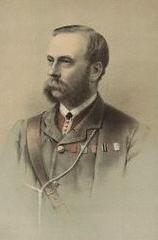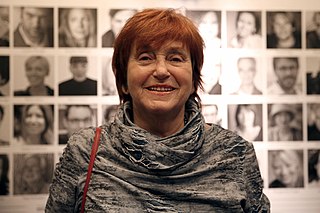A Quote by Sir Archibald Alison, 2nd Baronet
The exercise of criticism always destroys for a time our sensibility to beauty by leading us to regard the work in relation to certain laws of construction. The eye turns from the charms of nature to fix itself upon the servile dexterity of art.
Related Quotes
Art itself is essentially ethical; because every true work of art must have a beauty or grandeur of some kind, and beauty and grandeur cannot be comprehended by the beholder except through the moral sentiment. The eye is only a witness; it is not a judge. The mind judges what the eye reports to it; therefore, whatever elevates the moral sentiment to the contemplation of beauty and grandeur is in itself ethical.
The exercise of magical power is the exercise of natural powers, but superior to the ordinary functions of Nature. A miracle is not a violation of the laws of Nature, except for ignorant people. Magic is but a science, a profound knowledge of the Occult forces in Nature, and of the laws governing the visible or the invisible world. Spiritualism in the hands of an adept becomes Magic, for he is learned in the art of blending together the laws of the Universe, without breaking any of them and thereby violating Nature.
The experience of beauty is in the eye of the beholder, as they say. The artist's relation to the object of beauty, how the art makes that happen, is a whole other subject. Beauty is an event. Beauty is something that happens. There is no such thing as a beautiful object or a beautiful woman. These things do not come near it - the experience of beauty, the event of beauty. The anxiety about it is what makes it such a central concern of culture and makes us so interested in it.
The world is full of men and women who work too much, sleep too little, hardly ever exercise, eat poorly, and are always struggling or failing to find adequate time with their families. We are in a perpetual hurry-constantly rushing from one activity to another, with little understanding of where all this activity is leading us. . . . The world has gone and got itself in an awful rush, to whose benefit I do not know. We are too busy for our own good. We need to slow down. Our lifestyles are destroying us. The worst part is, we are rushing east in search of a sunset.
There is a certain standard of grace and beauty which consists in a certain relation between our nature, such as it is, weak or strong, and the thing which pleases us. Whatever is formed according to this standard pleases us, be it house, song, discourse, verse, prose, woman, birds, rivers, trees, room, dress, and so on. Whatever is not made according to this standard displeases those who have good taste.
The external appearance of any construction projects that are created during the time of the National Socialist Reich must take on the sensibility of our time. Factories are the workplaces of our National Socialist racial comrades. Streets and highways carry the name of the Führer. Settlements today are not isolated communities, but rather parts of greater city-construction plans. Every work site must be properly located within its neighborhood and surrounding setting (i.e., the natural world).
After illuminating the work of Rembrandt, Caravaggio, Louise Bourgeois, Balthus, and other modern artists, Mieke Bal again demonstrates her extraordinary flair for cultural criticism in taking on the work of Doris Salcedo, exploring the philosophical and aesthetic stakes of this committed political art and the relation between beauty, violence, and memory. A tour de force.
The female body has always been a construction. Even feminist art of the 1970s fashioned a body in accordance with its own ideas, and in this regard it was a form of manipulation too. Subsequently, we've had to engage with a lot of things that we used to disavow as manipulation. We can't just dismiss everything as manipulations anymore, since the alternatives are constructions, too. From our perspective, from this corner of the planet, we have to admit that it's all constructed. There is absolutely no nature. Nature is one of the biggest constructions.
We are not held accountable for how the economy ravages Congo. Governments aren't held accountable for foreign policies that they exercise there. There are no institutional structures to render justice. The press is very limited. There's very little transparency. You find a symmetry in certain basic human tendencies, and these tendencies are not always noble or beautiful. I think we have an instinct to turn away from that, to not acknowledge it, while it is something that's a part of us. There's a certain tragic and sad side to human nature that, in our quest for beauty, we ignore.
I believe that in a certain way this is proof of the truth of Christianity: Heart and reason encounter one another, beauty and truth converge, and the more that we ourselves succeed in living in the beauty of truth, the more that faith will be able to return to being creative in our time too, and to express itself in a convincing form of art.
I think that metaphor really is a key to explaining thought and language. The human mind comes equipped with an ability to penetrate the cladding of sensory appearance and discern the abstract construction underneath - not always on demand, and not infallibly, but often enough and insightfully enough to shape the human condition. Our powers of analogy allow us to apply ancient neural structures to newfound subject matter, to discover hidden laws and systems in nature, and not least, to amplify the expressive power of language itself.
































